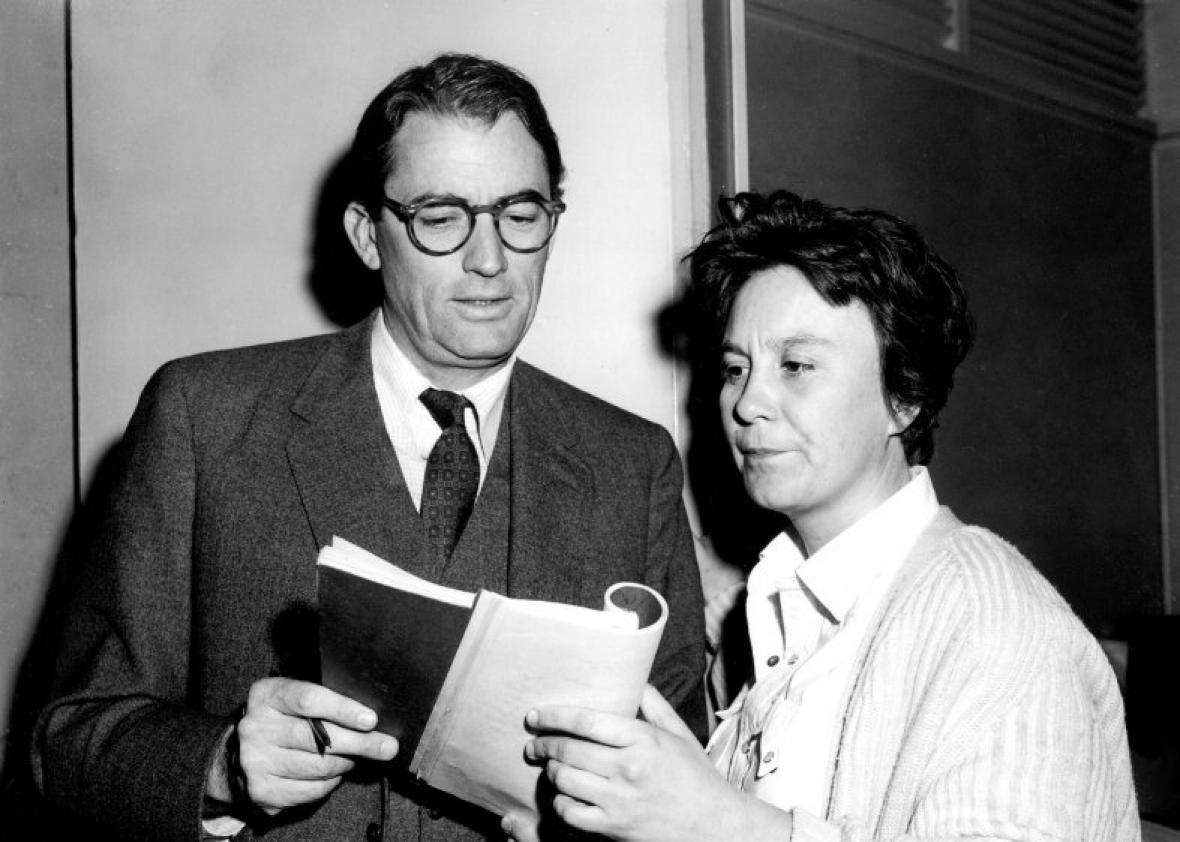In the years after Harper Lee published To Kill a Mockingbird in 1960, the beloved, moral patriarch Atticus Finch became a cultural icon. Some people were inspired to become lawyers because of Atticus. And some named their children after him. Now—with Harper Lee’s Go Set a Watchman (which Lee wrote before Mockingbird) due out Tuesday, and the first chapter already online—the early reviews have been shocking to many: In the new installment, which features a 26-year-old Scout and her aging father, Atticus allegedly has a dark side. Namely, he’s racist. So how do parents who named their kids Atticus feel about this development?
Becky Dennis, who lives in Tulsa, Oklahoma named her now 5-year-old son Atticus—and her dog Scout—because To Kill a Mockingbird has long been one of her favorite novels. Dennis estimates that she’s read the book 10 to 15 times since middle school.
“Atticus Finch is such a strong character, and we wanted to give [our son] a strong name,” Dennis said. “He was such a strong force in my life growing up, reading it and re-reading it over the years. I’m always reminded that as long as there are people like Atticus Finch—even though it’s fiction—in the world, we should all be OK.”
Dennis said she hasn’t talked to her son yet about what his name means, since he’s probably still too young to understand. But when she heard a new book was coming out, Dennis said she was both excited and nervous. “One of the first things I thought was, ‘Oh my gosh, I hope that his character is still the same and he hasn’t changed.’ ”
Then she read the New York Times piece that describes the new Atticus as “a racist who once attended a Klan meeting.” “My heart stopped a little,” she said.
John Edgerton and his wife Shelagh Kenney, both criminal defense lawyers in Durham, North Carolina, chose to name their son Atticus for similar reasons: “It represented some ideals that both my wife and I believe in pretty firmly about how people should be, and how they should treat each other,” Edgerton said. He certainly did not expect 72-year-old Atticus to say things like “The Negroes down here are still in their childhood as a people.”
But while it’s sad to lose the starkness of the original’s Atticus righteousness, Edgerton said, “it also provides some depth that wasn’t necessarily there before. Real life is not at all black and white. It’s very grey.” He explained that once his son (now 8 years old) was born, he became the most important Atticus—whatever happens to Atticus Finch, Atticus Kenney will still be Atticus Kenney. “Once you have the real child in front of you, that governs your perception,” Edgerton said. “Not what somebody wrote in a book.”
Kevin Herbon, from outside Chicago, had to do a little persuading before his wife signed off on the name “Atticus” for their son. “My wife had never read the book, and never really heard of the name, so I had to kind of sell her on it,” he said. “You want it to be a cute name when they’re young, but a name that’s not going to hold them back as an adult. And we wanted something with a lot of meaning. … [Atticus Finch] has all the qualities that I would want my son to have: He defends those who can’t defend themselves, and he’s honest, and he shows courage.” His Atticus is now 2 years old, and for his first birthday, Herbon gave him a leather-bound copy of To Kill a Mockingbird, with an Atticus Finch quote written in it.
When Herbon saw the news about the new, racist Atticus on Facebook, he said, he couldn’t “even imagine it.” “I want to have a conversation [with my son], when he’s older,” he added, “about why we chose his name.” But he is confident that the old Atticus’ decades-long head-start on his less saintly incarnation will protect his legacy as someone who stands up for the little guy. Besides, “It’s a good name,” a name that—unlike Go Set a Watchman, perhaps—gets “nothing but positive reviews.”
